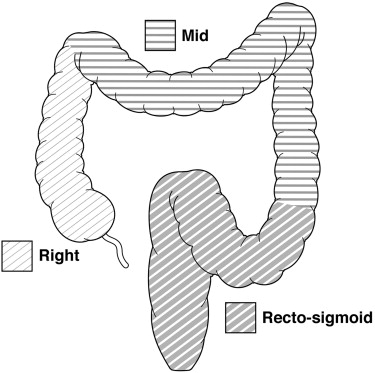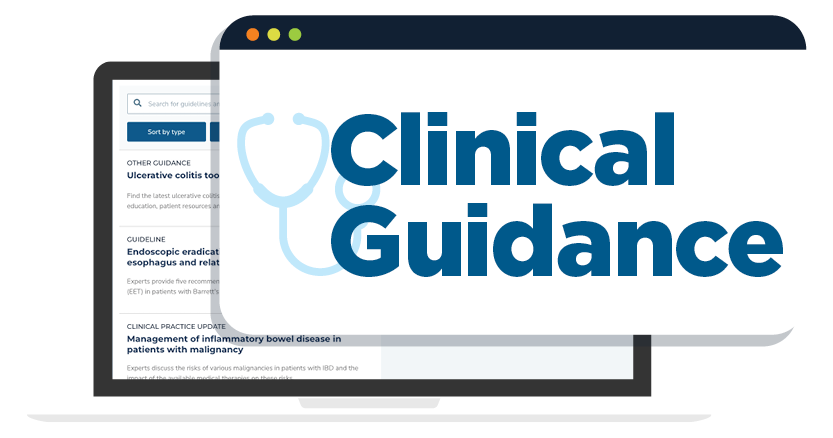1. Preliminary assessment of preparation quality should be made in the rectosigmoid colon, and if the indication is screening or surveillance and the preparation clearly is inadequate to allow polyp detection greater than 5 mm, the procedure should be either terminated and rescheduled or an attempt should be made at additional bowel cleansing strategies that can be delivered without cancelling the procedure that day.
2. If the colonoscopy is complete to cecum, and the preparation ultimately is deemed inadequate, then the examination should be repeated, generally with a more aggressive preparation regimen, within 1 year; intervals shorter than 1 year are indicated when advanced neoplasia is detected and there is inadequate preparation.
3. If the preparation is deemed adequate and the colonoscopy is completed then the guideline recommendations for screening or surveillance should be followed.
4. Use of a split-dose bowel cleansing regimen is strongly recommended for elective colonoscopy.
5. A same-day regimen is an acceptable alternative to split dosing, especially for patients undergoing an afternoon examination.
6. The second dose of split preparation ideally should begin 4-6 hours before the time of colonoscopy with completion of the last dose at least 2 hours before the procedure time.
7. By using a split-dose bowel cleansing regimen, diet recommendations can include either low-residue or full liquids until the evening on the day before colonoscopy.
8. Health care professionals should provide both oral and written patient education instructions for all components of the colonoscopy preparation and emphasize the importance of compliance.
9. The physician performing the colonoscopy should ensure that appropriate support and process measures are in place for patients to achieve adequate colonoscopy preparation quality.
10. Adequacy of bowel preparation should be assessed after all appropriate efforts to clear residual debris have been completed.
11. Measurement of the rate of adequate colon cleansing should be conducted routinely.
12. Adequate preparation, defined as cleansing that allows a recommendation of a screening or surveillance interval appropriate to the findings of the examination, should be achieved in 85% or more of all examinations on a per-physician basis.
13. Selection of a bowel-cleansing regimen should take into consideration the patient’s medical history, medications and, when available, the adequacy of bowel preparation reported from prior colonoscopies.
14. A split-dose regimen of 4 L polyethylene glycol-electrolyte lavage solution (PEG-ELS) provides high-quality bowel cleansing.
15. In healthy nonconstipated individuals, a 4-L PEG-ELS formulation produces a bowel-cleansing quality that is not superior to a lower-volume PEG formulation.
16. The OTC bowel cleansing agents have variable efficacy that ranges from adequate to superior, depending on the agent, dose, timing of administration, and whether it is used alone or in combination; regardless of the agent, the efficacy and tolerability are enhanced with a split-dose regimen.
17. Although the OTC purgatives generally are safe, caution is required when using these agents in certain populations; for example, magnesium-based preparations (both OTC and FDA-approved formulations) should be avoided in patients with chronic kidney disease.
18. The routine use of adjunctive agents for bowel cleansing before colonoscopy is not recommended.
19. Split-dose bowel cleansing is associated with greater willingness to repeat regimen compared with the day before regimen.
20. The use of low-volume bowel cleansing agents is associated with greater willingness to undergo a repeat colonoscopy.
21. There is insufficient evidence to recommend specific bowel preparation regimens for elderly persons; however, we recommend that sodium phosphate (NaP) preparations be avoided in this population.
22. There is insufficient evidence to recommend specific bowel preparation regimens for children and adolescents undergoing colonoscopy; however, we recommend that NaP preparations should not be used in children younger than age 12 or in those with risk factors for complications from this medication.
23. NaP should be avoided in patients with known or suspected inflammatory bowel disease.
24. Additional bowel purgatives should be considered in patients with risk factors for inadequate preparation (eg, patients with a prior inadequate preparation, history of constipation, use of opioids or other constipating medications, prior colon resection, diabetes mellitus, or spinal cord injury).
25. Low-volume preparations or extended time delivery for high-volume preparations are recommended for patients after bariatric surgery.
26. Tap water enemas should be used to prepare the colon for sigmoidoscopy in pregnant women.
27. There is insufficient evidence to recommend specific regimens for persons with a history of spinal cord injury; additional bowel purgatives should be considered.
28. Large-volume enemas can be attempted for patients who, presenting on the day of colonoscopy, report brown effluent despite compliance with the prescribed colon-cleansing regimen.
29. Through-the-scope enema with completion colonoscopy on the same day can be considered, especially for those patients who receive propofol sedation.
30. Waking the patient entirely from sedation and continuing with further oral ingestion of cathartic with same-day or next-day colonoscopy has been associated with better outcomes than delayed colonoscopy.













